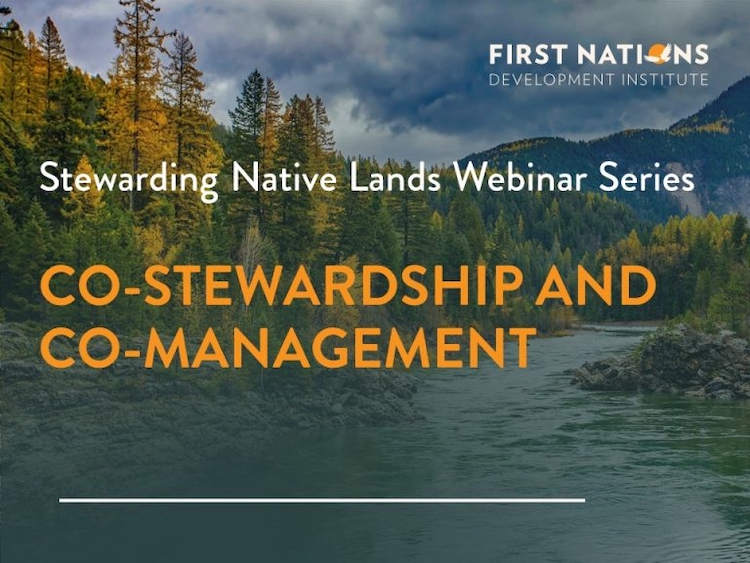The Indigenous Co-Stewardship and Co-Management webinar series focuses on laws and policies, coalition-building, and first-hand experiences of Indigenous community partners.

Webinar 3: Indigenous Stewardship of National Forests Case Study Report
In 2024, First Nations hosted a four-part webinar series on Indigenous Stewardship of National Forests that highlighted case studies from nine Tribes and culminated in a new report available next month. In this webinar, contributors discuss learnings that informed the report.
About the Speakers:
Martin Nie is Professor of Natural Resources Policy and Director of the Bolle Center for People and Forests at the W.A. Franke College of Forestry and Conservation at the University of Montana. He specializes in federal public lands, resources and wildlife policy. Much of his work focuses on the challenges and opportunities in managing shared resources that cross boundaries amongst federal, state and tribal sovereign governments. He is co-author (with Monte Mills) of several articles, reports and other writing focused on Tribal co-management, including “Bridges to a New Era: A Report on the Past, Present, and Potential Future of Tribal Co-Management on Federal Public Lands” (Public Land & Resources Law Review, 2021), “Bridges to a New Era, Part II: A Report on the Past, Present and Potential Future of Tribal Co-Management on Federal Public Lands in Alaska,” (Columbia Journal of Environmental Law, 2022), and “Planning a New Paradigm: Federal Public Lands Planning and Tribal Co-Stewardship” (Colorado Environmental Law, 2025), and others.
Monte Mills is a Professor of Law and Director of the Native American Law Center at the University of Washington School of Law. Monte’s research and writing focuses on the intersection of Federal Indian Law, Tribal Sovereignty, and natural resources as well as race and racism in law and legal education. He has published several law review articles and serves as a co-author on two textbooks: American Indian Law, Cases and Commentary and Native American Natural Resources Law. Monte also co-authored A Third Way: Decolonizing the Laws of Indigenous Cultural Protection, which was published by Cambridge University Press in July 2020. Prior to joining the UW faculty, Monte was a professor and Co-Director of the Margery Hunter Brown Indian Law Clinic at the Alexander Blewett III School of Law at the University of Montana. Prior to his time at the University of Montana, Monte was the Director of the Legal Department for the Southern Ute Indian Tribe in Colorado, an in-house counsel department that he helped organize and implement in 2005 following completion of a unique two-year in-house attorney training program. As Director of the Tribe’s Legal Department, Monte represented and counseled the Tribe on a broad array of issues, including litigation in tribal, state and federal courts, legislative matters before the Colorado General Assembly and the United States Congress, and internal tribal matters such as contracting, code-drafting, and gaming issues.
Tommy Cabe is a tribal member of the Bird Town Community and The Forest Resource Specialist for the Eastern Band of Cherokee Indians Natural Resource Department. He studied environmental and natural sciences at several higher education institutions before discovering his interest in forestry. While completing the forestry program at Haywood Community College in 2000, he was employed by the Eastern Band of Cherokee Indians Environmental Department as an Air Quality Technician before advancing to the evolving Water Quality Program as the Nonpoint Source Coordinator. There, he managed several projects on tribal lands to minimize pollution in the tribal watersheds. Tommy also served as the Tribal Environmental Planner, where he oversaw both the Air Quality Program and the Non-Point Source program.